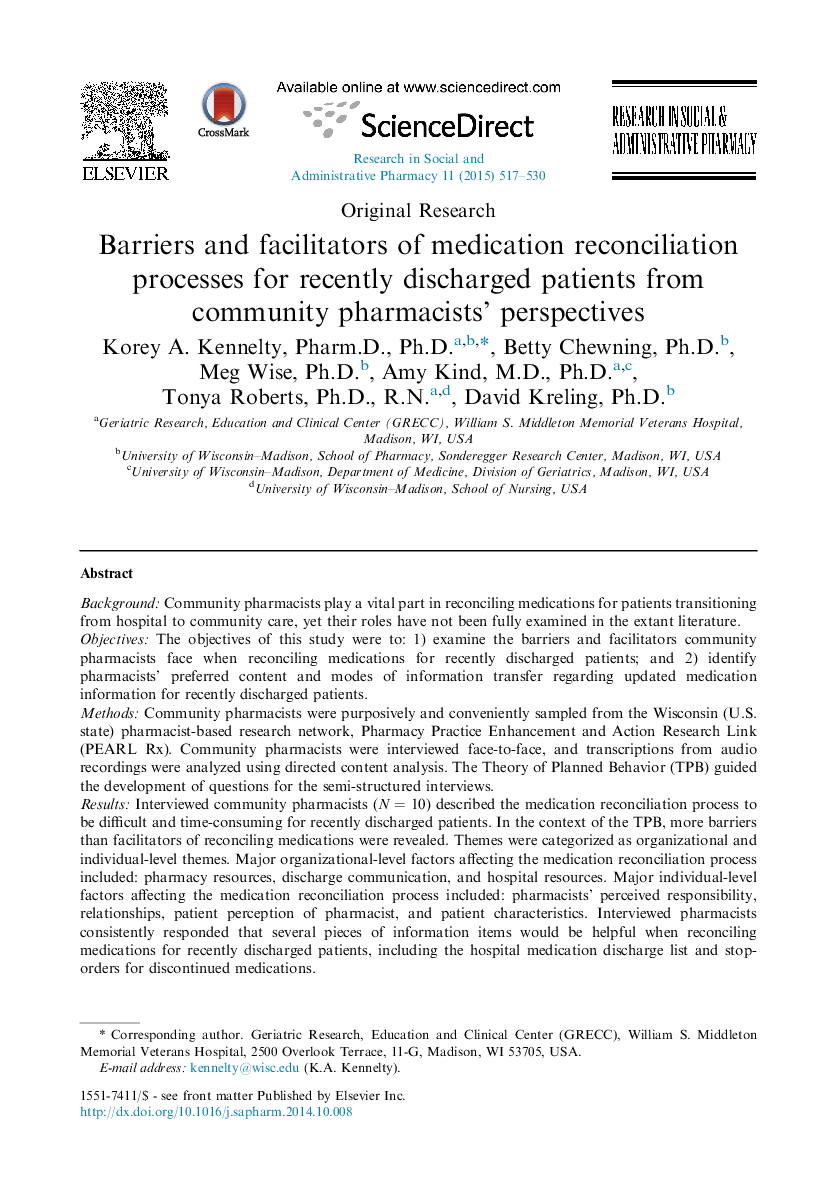| Article ID | Journal | Published Year | Pages | File Type |
|---|---|---|---|---|
| 2508344 | Research in Social and Administrative Pharmacy | 2015 | 14 Pages |
BackgroundCommunity pharmacists play a vital part in reconciling medications for patients transitioning from hospital to community care, yet their roles have not been fully examined in the extant literature.ObjectivesThe objectives of this study were to: 1) examine the barriers and facilitators community pharmacists face when reconciling medications for recently discharged patients; and 2) identify pharmacists' preferred content and modes of information transfer regarding updated medication information for recently discharged patients.MethodsCommunity pharmacists were purposively and conveniently sampled from the Wisconsin (U.S. state) pharmacist-based research network, Pharmacy Practice Enhancement and Action Research Link (PEARL Rx). Community pharmacists were interviewed face-to-face, and transcriptions from audio recordings were analyzed using directed content analysis. The Theory of Planned Behavior (TPB) guided the development of questions for the semi-structured interviews.ResultsInterviewed community pharmacists (N = 10) described the medication reconciliation process to be difficult and time-consuming for recently discharged patients. In the context of the TPB, more barriers than facilitators of reconciling medications were revealed. Themes were categorized as organizational and individual-level themes. Major organizational-level factors affecting the medication reconciliation process included: pharmacy resources, discharge communication, and hospital resources. Major individual-level factors affecting the medication reconciliation process included: pharmacists' perceived responsibility, relationships, patient perception of pharmacist, and patient characteristics. Interviewed pharmacists consistently responded that several pieces of information items would be helpful when reconciling medications for recently discharged patients, including the hospital medication discharge list and stop-orders for discontinued medications.ConclusionsThe TPB was useful for identifying barriers and facilitators of medication reconciliation for recently discharged patients from community pharmacists' perspectives. The elucidation of these specific facilitators and barriers suggest promising avenues for future research interventions to improve exchange of medication information between the community pharmacy, hospitals, and patients.
